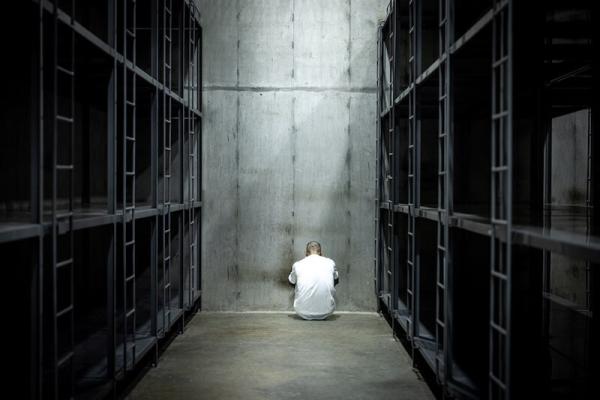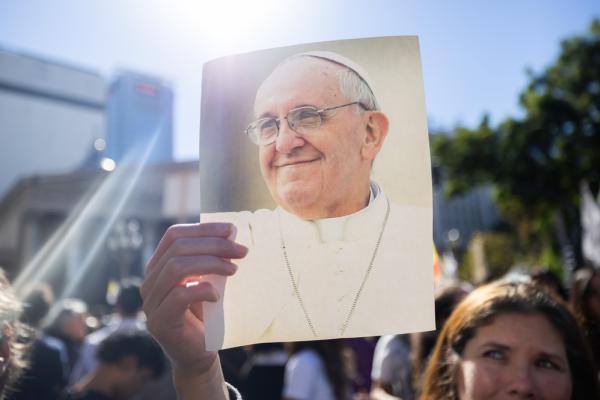In 2017, the First Baptist Church on Fifth Street in Winston-Salem, N.C., where I worked as an Associate Pastor, decided to close its children’s center ministry, the only five-star rated child care program in the city’s downtown area. The costs of maintaining the older buildings that housed the church’s child care ministry outpaced the congregation’s ability to raise funds. In this sense, First Baptist did not stand out in any unique way. Attendance and giving at churches across the country has dwindled for decades.
For 50 years, First Baptist had operated this child care center, which — at its inception — was the first integrated educational institution in Winston-Salem. When news of the center’s closing made the front page of the local paper, it sent shockwaves throughout the city. As I watched the reactions to the church’s decision, I couldn’t help but think: How did we get here? How did we get to the point where child care was such an expensive endeavor, one borne by a hodgepodge of families, churches, non-profits, and businesses?
Things could have been different. In 1971, President Nixon vetoed a bipartisan bill, the Comprehensive Child Development Act, that would have provided universal child care to every child in America. Against the backdrop of the fear of communism, Nixon stated that the bill would undermine the family unit. By 1975, political momentum for national comprehensive child care died out under political pressure from the religious right. Thousands of letters flooded the offices of the members of Congress written by Christians motivated by an anonymous flier that claimed that child care programs would lead to a society that outlawed children attending church and empowered them to sue their parents or form their own labor unions.
It’s not hard for me to imagine many Christians in Winston-Salem holding up the First Baptist child care center as an example of why a universal child care program wasn’t necessary. Where individual families really needed it, their local church community would step in. Christians have used this logic as a way to politically undercut what could be democratically controlled, public goods, believing that local communities should solve local problems.
Many people, both inside and outside of the church, spoke about the problem of child care according to the same reasons. They viewed it as a complex, local problem with complex, local solutions. A team of parents attempted to create a new center and soon discovered the massive amount of capital, time, energy, and attention it would take. Everyone involved insisted that some solution must be possible if only we could bring together various stakeholders in the community to find a way to provide child care for those that need it. But this obscures the truth about the problem of child care in capitalism: It’s not complex and local, but big and universal.
The point of Nixon’s veto and the outpouring of letters was the protection of the family driven by fear that communism would dwindle the bonds of traditional families by encouraging women to go into the workplace and hand over the care of children to the state. But what has actually happened? America has a disgraceful child poverty rate. Even for families with stable income, the cost of raising children puts an incredible strain on their family’s lives. I witnessed how difficult it was for parents to not only find and pay for a child care center, but because they were unevenly distributed around the city, daily transportation to and from the child care center created a juggling act for many working parents.
Policy analyst Matt Bruenig categorizes two challenges created by having children in a capitalist society. The first is the “mere addition problem” in which having a child creates new expenses for families but no new income. The second problem he calls the “life cycle income problem” wherein families typically have children earlier in their careers when their income is lower than it will be after they gain experience, promotions, and raises. These two problems, inherent in the capitalist system, lead to huge strains on the lives of families and children.
With the 2020 election approaching, Elizabeth Warren has proposed a plan to subsidize child care for all Americans. A good but flawed piece of legislation, it’s certainly a step in the right direction. In Bruenig’s paper, he outlines a more expansive set of policies that would address the problems created by capitalism: paid paternity leave, free universal child care, free pre-k, free health care, and a monthly child allowance for every family. Working to make such policies a reality is important if, as Dorothy Day once wrote, our goal is “to build that kind of society where it is easier for people to be good.”
His proposal for free, universal child care fills the gap that First Baptist couldn’t. The problem of child care is simply too big and important to be left to a patchwork solution. Bruenig proposes that the federal government fund these centers while local school districts administer them. This addresses the scale of the problem that churches, non-profits, and individual parents can’t overcome, but still allows communities to attend to local particularities.
Policies like these would require Christians and church communities to reverse course from the political theology held for close to 30 years that led them to oppose universal child care in the 1970s. It will require admitting that the care of children is not something that local communities can handle on their own, that the problems with raising children in our society stem not from the encroachment of the state, but the contradictions inherent in capitalism. Christians that truly care about children and families ought to dream, struggle, and aspire for more.
Got something to say about what you're reading? We value your feedback!







